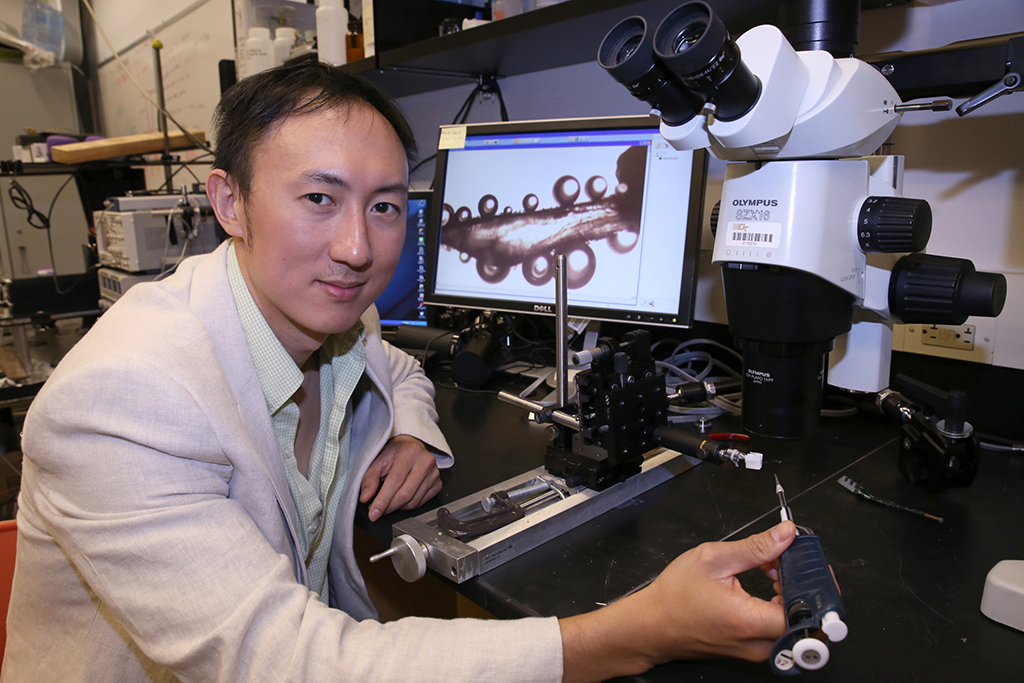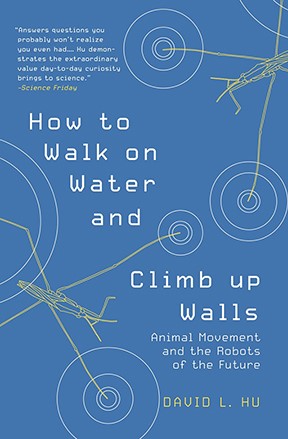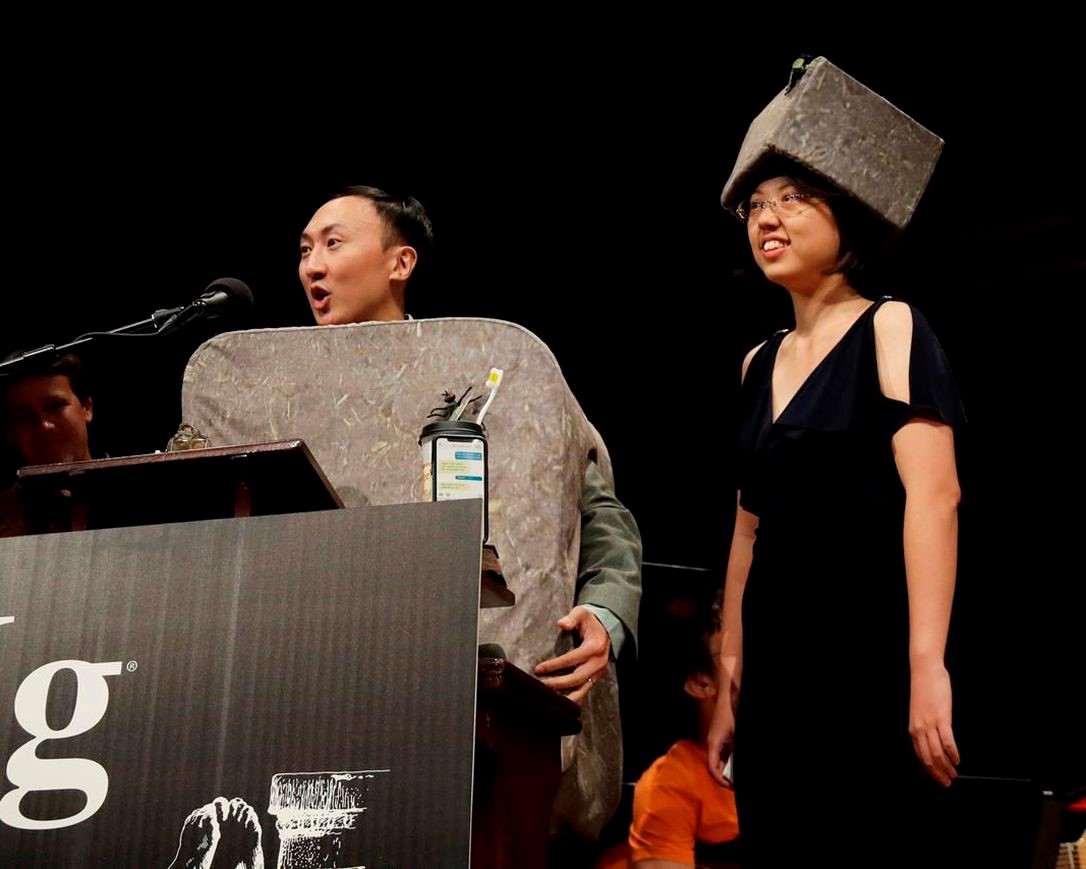The first book from David Hu, professor in the School of Biological Sciences, continues to collect honors. The newest accolade will result in Hu’s book being added to public school libraries across the U.S.
The American Association for the Advancement of Science has named Hu’s “How To Walk On Water and Climb Up Walls: Animal Movement and Robots of the Future” as a finalist for its 2020 AAAS/Subaru SB&F (Science Books and Films) Prize for Excellence in Science Books in the Young Adult Science Book category. As part of its Suburu Loves Learning program, the auto manufacturer will provide school libraries serving kindergarten through 12th grade copies of all finalists and winners of the AAAS/Subaru Prize.
Winners will be announced in January, and the awards will be presented at the 2020 AAAS Annual Meeting, in Seattle, on Feb. 13-16, 2020.
“Insects walk on water, snakes slither, and fish swim. Animals move with astounding grace, speed, and versatility: How do they do it, and what can we learn from them? In “How to Walk on Water and Climb Up Walls,” David Hu takes readers on an accessible, wondrous journey into the world of animal motion,” AAAS said in a press release.
“How to Walk on Water and Climb Up Walls” was published in 2018 by Princeton Press. In October, it was named one of two books winning the 2019 Science Communication Awards from the American Institute of Physics (AIP). “Hu’s book explores the astounding diversity and versatility of animal locomotion and how engineers are inspired by it as they design robotics. His team discovered how dogs shake dry, how insects walk on water, and how eyelashes protect the eyes from drying,” AIP said in a press release.
It’s been a busy, award-filled year for Hu. Earlier this year he won his second Ig Nobel Prize, which is a tongue-in-cheek version of the Nobel Prizes. It honors unusual research while celebrating curiosity-driven science. Hu, working in collaboration with Australian scientist Scott Carver and Georgia Tech students, won the 2019 Ig Nobel in physics for studying why wombats produce cube-shaped feces.
Hu’s quirky, humor-filled take on science in 2019 also won him his third Pineapple Science Prize, an honor presented by Chinese science advocates “designed to honor researchers with great imagination and to arouse the public enthusiasm for science.” Hu, who won this prize in 2015 and 2016, took this latest honor for researching in detail how cats use their tongues to clean themselves.
Hu is a professor focusing on fluid mechanics in the School of Mechanical Engineering, an adjunct professor in the School of Physics, and a member of the Petit Institute for Bioengineering and Bioscience. Hu earned a doctorate in mathematics and a bachelor’s degree in mechanical engineering from Massachusetts Institute of Technology. He is a recipient of the National Science Foundation CAREER award for young scientists. Hu’s work has been featured in The Economist, The New York Times, Saturday Night Live, and Highlights for Children. He is originally from Rockville, Maryland.
For More Information Contact
Renay San Miguel
Communications Officer
College of Sciences
404-894-5209





